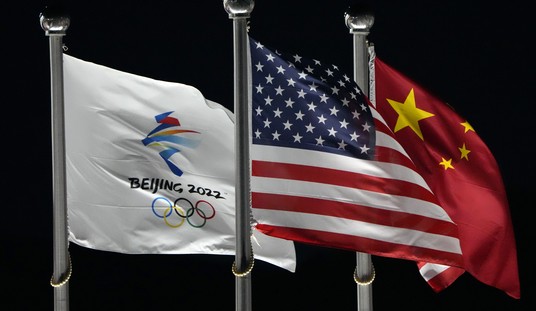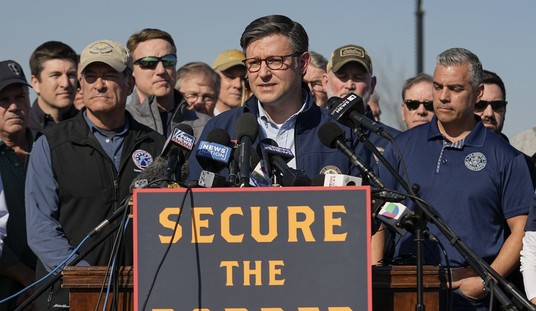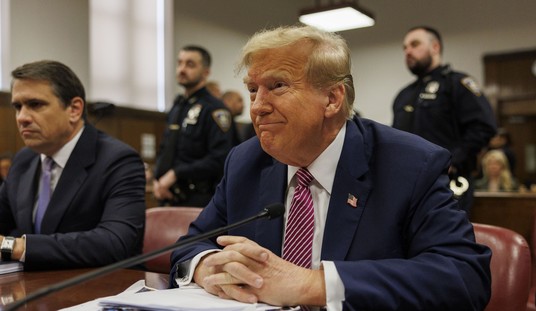Don’t be daunted by the length of the clip. His speech runs just 12 minutes, starting at around 2:45, and is worth your while for various reasons. The most basic is that it’s bound to antagonize righties on the eve of the primaries, even though all he’s really doing is making the old point that both sides tend to be just fine with “judicial activism” when the court’s decision goes their way. If “judicial restraint” means letting the majority rule, who among us on the right wouldn’t have preferred to see John Roberts be a bit more “activist” in ruling on ObamaCare’s individual mandate? If SCOTUS eventually takes up and strikes down Obama’s executive amnesty, liberals will screech from the hilltops that the Court is engaged in egregious judicial activism. Paul, the most outspoken civil libertarian in the GOP field, wants to make sure courts aren’t too constrained by conservative pressure in reining in big government’s excesses on constitutional grounds.
Another bit to watch for is his take on the landmark Lochner decision, a position he’s held for years but which continues to surprise me. I wrote about it in 2013 after he mentioned it during his filibuster on drone strikes on the Senate floor. It’s no surprise that a libertarian would agree with the majority in Lochner, a 1905 case in which the Court decided that the Constitution’s implied right of “freedom of contract” barred state governments from passing laws that regulated workplace conditions for bakers. Libertarians oppose regulation, especially in labor matters; the Lochner ruling may well be the biggest constitutional bomb ever dropped on the state’s power to regulate. Of course Paul supports it. But you can see the political peril in it for a guy gearing up for a national election. Lochner featured a famous dissent by Oliver Wendell Holmes arguing that there’s nothing in the Constitution that prevents a state legislature, as representatives of the majority, from regulating economics. That dissent became conventional wisdom among the judiciary by the late 1930s; Lochner is regarded by most judges today as a long-discarded relic of an overly ideological Court. If Paul ends up as the nominee, the core Democratic attack on him will be that he’s a retrograde kook who wants to take America back to a time not only before the civil-rights movement but before the state’s power to protect workers — and the New Deal, and the Great Society — was fully recognized. Paul knows that, yet he’s still willing to name-check a case decided 110 years ago that even many conservative judges long ago dispensed with. I hope libertarians appreciate his willingness to go to the mat on it, given what it might cost him.
One more reason to watch: The great unspoken issue here in the judicial activism/judicial restraint debate is gay marriage. There’s a SCOTUS hearing on that looming. If the decision turns out the way everyone expects, with the Court striking down state gay marriage bans as violations of equal protection, conservatives will cite it as a supreme instance of judicial activism. Where does that leave Paul now that he’s made the case that judicial activism not only isn’t bad but is frankly necessary to protect minorities from majoritarian laws that discriminate against them? Rand supports traditional marriage but thinks the states should be allowed to decide the issue — precisely the sort of “judicial restraint” that he dismisses here. If you surveyed libertarians, I bet you’d find that a wide majority think gay marriage is an issue of individual freedom and therefore precisely the sort of right that courts should be protecting — contra Rand. If he’s okay with judicial activism in support of personal liberty, why shouldn’t the courts rather than the states settle this issue?







Join the conversation as a VIP Member